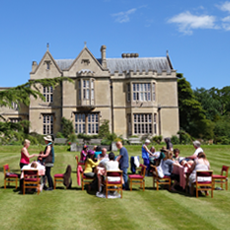Keep Reiki Free
ICRT Legislative Committee
Mission Statement
To keep Reiki free from unnecessary legislative restrictions and accessible for all.
Our Purpose
The purpose of the ICRT Legislative Committee is to educate state legislators about the nature of Reiki practice, so as to discourage unnecessary regulation, and to support protective legislation. It is also to notify the public about any such proposed legislation and encourage the public to contact their legislators to voice their concerns or support of the proposed bills. Attempts have been made by some state legislatures to regulate Reiki, including making it mandatory to obtain a state license to practice. However, state regulation and licensing would make it overly difficult and costly to practice Reiki, thus significantly limiting the number of practitioners available to the public. This is especially unnecessary when you consider that the practice of Reiki is a simple and gentle technique that does not pose the possibility of causing harm to the public and does not meet the threshold for licensing. Our committee works closely with the National Health Freedom Coalition, an organization that has been integral in helping protect complementary therapies in the United States for over 20 years.
About Us
The ICRT Legislative Committee was founded by William Lee Rand in 2021 to be proactive on legislative activity that may affect Reiki practitioners, teachers, students, and clients. This committee includes ICRT Licensed Reiki Master Teachers Jules Davis and Jenny Stinson, with support from the International Center for Reiki Training. Read "Reiki and Legislation" by Jules Davis to learn more.
Since our committee was formed, we have been successful in helping to prevent energy healing licensing bills from being passed in Massachusetts (2021, 2022) and Oregon (2022). The last bill we helped thwart in Massachusetts was asking for upwards of $8,000 in licensing fees. Our campaign this year against the current licensing attempts in Massachusetts have so far stalled out their progress, and we hope to extinguish them fully by the end of the legislative session.
Legislative Activity
We are currently in opposition to and monitoring bills H. 282, S.191 and H. 350 in Massachusetts, HB 1241 in Pennsylvania, and A. 2461 in New Jersey (2023).
We are currently in support of a safe harbor exemption bill that protects complementary therapies like Reiki in Massachusetts S. 1329, and H. 2244 (2023).
Things to Know
- At this time, we are exclusively working within the United States.
- We are looking for assistance from within state and local legislatures to support our mission.
- While we are doing our best to stay current on legislative activity, we are most informed on a state level and do not know every code of every municipality in the country.
- We may call on you to contact your state and local representatives and voice your support or discontent with a bill.
- If it’s a bill we do not support, we will assist you in writing an email or personal communication that is professional and in alignment with our Reiki philosophy.
Your state may have a Safe Harbor law that can protect you.
What is a Safe Harbor Law?
Safe Harbor exemption laws are written and enacted to protect consumer access to a broad range of complementary health and wellness practitioners, that are not currently regulated by the states and that do not rise to the level of concern requiring state oversight, certification, registration, or licensure.
Safe Harbor States (currently active)
Oklahoma, Idaho, Minnesota, Rhode Island, California, Louisiana, New Mexico, Arizona, Colorado, Nevada, and Maine
A video from the ICRT Legislative Committee
We want to hear from you
Are you a constituent in a state where there may be an active bill in need of support or rebuttal? Do you have the desire to help get safe harbor laws passed in your state if you are not currently protected by one? Please contact us: KeepReikiFree@Reiki.org
Disclaimer
Please be advised that we are looking to educate and support the Reiki Community, however, we are not lawyers, and cannot provide legal advice, nor can we help everyone on an individual basis. We strongly advise you to always do your due diligence and look into your own state and local laws surrounding business and vocational licensing procedures.







